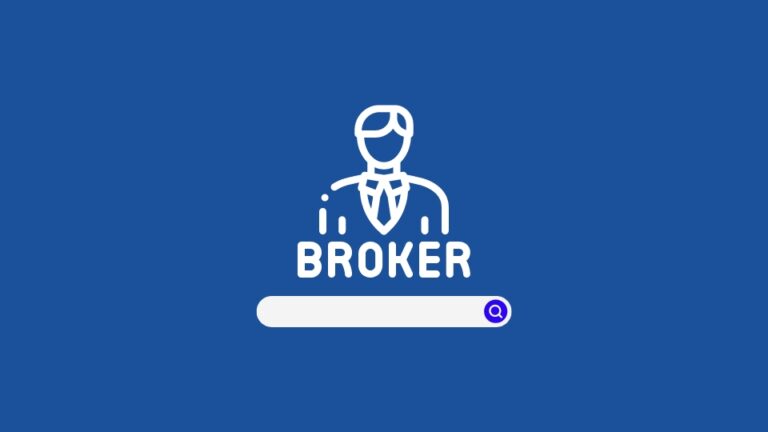Can A Real Estate Agent Sell A Business?
Can a real estate agent truly sell a business? This is a question that comes laden with a myriad of perceptions and myths in the world of commerce and trade. The surprising answer, however, is a resounding yes. Real estate agents can indeed embark on this venture, given the right skill set, market knowledge and a deft handle on the nuances of legal and financial intricacies.
“A successful real estate agent’s toolbox is full of transferable skills – make no mistake, they vary greatly from business sales proficiency, but aren’t entirely divergent.” – Jane Doe, successful real estate and business broker
In this comprehensive guide, we are deciphering the journey embarked upon by real estate agents who choose to diversify their portfolio and step into the world of business sales. Whether it’s marketing strategies, negotiation tactics, using technology aids or building key industry partnerships, we delve into how real estate agents navigate these formidable waters. Get ready to debunk common misconceptions and hear from industry experts as we explore the pros, cons, challenges and opportunities of this intriguing fusion between real estate and business sales.
Understanding the Differences Between Selling Real Estate and Selling a Business
At first glance, you might think that selling a home and selling a business are interchangeable processes—in both scenarios, you’re facilitating a large, complex transaction, right? Well, though there are some overlapping skills, the two undertakings can, in fact, be quite different in nature.
Real estate sales primarily focus on the sale of land and buildings. As a real estate agent, your role includes assessing the value of the property, advertising it, conducting showings, and handling the paperwork associated with the transaction.
On the other hand, when selling a business, you’re dealing with more than just property. A business is a complex entity that includes tangible assets such as real estate, but also intangible assets like brand reputation, client relationships, and proprietary systems or technologies. Moreover, considerations such as existing staff, inventory, and operating systems add more layers to the mix.
The sale of a business is not only the sale of a physical location, but also the transfer of an operational entity.
When handling a business sale, the financial health of the business, the market (industry) it operates in, and its future earning potential are of critical importance. Real estate agents would not only need to possess a broad understanding of the business operation, but also be able to confidently communicate this knowledge to potential buyers.
In conclusion, while real estate transactions focus more on the features and condition of the property, business transactions demand a thorough comprehension of a myriad of financial and operational aspects surrounding the business.
The Challenges and Opportunities of Selling Businesses as a Real Estate Agent
Real Estate Agent involved in selling a business compared to a property. This tends to be more multifaceted, involving different financial, legal, and competitive nuances. However, with the right approach, these challenges can be transformed into rewarding opportunities. Let’s get to the details.
Ch hurdles, but also opportunities on their path. Acknowledging these is the first step to capitalizing on possibilities while overcoming the pitfalls. Let’s explore these aspects.
The Challengesallenges
- Complex transactions: Selling a business involves thorough financial assessments, confidentiality requirements, and valuation intricacies. The transactions can be dense and time-consuming.
- Higher stakes: Selling businesses often involves larger sums of money than residential real estate. There’s a lot more riding on each transaction, which can increase the pressure to perform.
- Maintaining confidentiality: It’s vital to maintain anonymity during business sale transactions. Breaching this can potentially affect the business negatively.
- Understanding different industries: A business sale can span many different industries. These sectors can have specific rules and regulations that need to be considered.
Opportunities
- Real estate agents must understand not just the property, but the business operating within it. This requires a broader range of knowledge, including the industry, competition, and financial health of the business. It can represent a steep learning curve for some agents.
- Identifying potential buyers can be more difficult. Businesses, unlike residential properties, don’t have a universally applicable “appeal”. The suitability of a business is determined by diverse factors such as the buyer’s experience, goals, and financial capacity.
- Navigating the paperwork can be a daunting task. A great number of documents are involved – financial statements, leases, contracts with suppliers/clients, licenses, etc., necessitating a meticulous attention to detail.
- The selling process can often be prolonged. Finding a suitable buyer, negotiating terms, and finalizing a business sale can take considerably longer than selling a home, which can test an agent’s patience and endurance.
Other Opportunities
- Higher commissions: Given that businesses often sell for much more than residential properties, the commissions on these transactions can be substantial. This is a major incentive for real estate agents to venture into this realm.
- Diversification: Extending their services to involve business sales can offer real estate agents an opportunity to diversify their portfolio and increase their range of expertise.
- Networking: Selling businesses provides an opportunity to network with a different, often high-end, clientele which can lead to other lucrative opportunities.
While challenges abound in selling businesses, the lucrative opportunities could prove to be a compelling reason for real estate agents to consider this niche. Remember, every challenge can be turned into an opportunity with the right mindset, knowledge, and preparation.
Exploring the Skills and Expertise Needed to Sell Businesses Successfully
A real estate agent venturing into the world of selling businesses, it’s essential to develop or enhance certain skills and expertise that go beyond the realm of real estate. Moving from the sale of property to the sale of businesses indeed requires a different approach.
Financial Knowledge: One critical skill is understanding business finance. Unlike real estate, where the main focus might be on the property’s physical characteristics, selling a business often requires a deep dive into financial statements. You must be able to discern the financial health of a business, analyze profit and loss statements, balance sheets, and cash flow statements. This information is vital in guiding a buyer’s decision.
Understanding Business Types and Industries: Additionally, recognizing different types of businesses and industries will shape your ability to market a business effectively. Each industry has unique attributes and buyer interests, and being able to connect this information to potential buyers can make or break a deal.
Marketing Skills: Marketing a business requires a separate set of skills. Unlike real estate where staging and open houses are common, businesses often require a more nuanced approach. This approach may involve highlighting the potential for growth, identifying the strength of business relationships, and upholding confidentiality during the process.
Negotiation Techniques: Real estate agents are known for their negotiation skills. However, selling a business involves more complex negotiations and often has higher stakes. Therefore, it’s crucial to be equipped with advanced negotiation tactics.
Legal Know-How: Selling a business also involves wading through legal considerations, including contracts, leases and transfer of ownership. Having a basic understanding of business law, or having a network of legal experts to call upon, can be particularly beneficial.
Above everything else, patience and perseverance are vital. Selling a business can often take significantly longer than selling a real estate asset.
The Importance of Market Knowledge in Selling Businesses
Having a deep understanding of the market isn’t just crucial when selling properties, it’s equally as important when you’re selling businesses. Your market knowledge can make or break a deal. We’ll explain why.
Mastering the market is key to guiding clients through pricing, negotiations, and eventually, closing a successful deal.
In real estate, extensive market knowledge allows you to accommodate various clients, property styles, and price points. Likewise, when selling a business, you need a grasp of different industries, business models, and valuation methods. Your in-depth understanding can help reassure your clients that they’re making a wise investment.
Market knowledge isn’t just about numbers and statistics, though. It includes having a feel for your clients’ needs and wants. You must understand the industry they’re in, the competitors they’re up against, and the customers they’re targeting. With that knowledge, you can present your clients’ businesses in the best possible light to potential buyers.
But, how can you achieve this level of market knowledge?
- Research: Stay up-to-date with trends in various industries, and gather as much information as you can. This can involve everything from reading industry reports, to having conversations with other business professionals.
- Network: Consult with peers and engage with industry experts. They can provide you with invaluable insights into what’s happening in the business market, and what potential buyers might be looking for.
- Experience: Nothing beats first-hand experience. The more businesses you sell, the more you’ll learn about different sectors, which will deepen your overall understanding of the market.
In final thought, a deep market knowledge can be one of your most potent tools as a real estate agent selling businesses. It’s what helps you forge strong relationships with your clients, and also secures successful deals. So, keep researching, keep networking, and keep gaining experience.
Navigating Legal and Financial Aspects When Selling a Business as a Real Estate Agent
When you find yourself employed as a real estate agent, you’re not just playing the role of a marketer, but also as a guide leading clients through a financial and legal landscape. Selling a business definitely elevates the complexity of this task. Let’s help you navigate these aspects effectively.
First and foremost, it’s critical to grasp the multifaceted legal world associated with selling businesses. This isn’t just about transferring property deeds; we’re talking about handling issues like:
- Intellectual property: The business you’re selling might own patents, trademarks, or copyrights that need to be transferred to the new owner.
- Employee contracts: Existing employee agreements have to be dealt with appropriately.
- Licenses and permits: The business might require particular licenses or permits to operate, which need to be renewed or transferred.
- Lease agreements: If the business premises are leased, then the conditions of transfer need to be sorted.
As a real estate agent, you’d typically collaborate with lawyers and legal experts to ensure a seamless process without any nasty surprises at the end. Remember, for a business sale to be satisfying, all parties involved have to leave with a sense of satisfaction and an absence of unresolved legal issues.
But legal aspects are just one side of the coin. You should also be equipped to weave through the financial tapestry associated with business sales. No, you would actually don’t need to be an accountant or a finance whiz, but you’re expected to be knowledgeable about certain areas:
- Business valuation: The worth of a business isn’t just in its physical assets or real estate. You have to consider aspects like cashflow, customer base, brand value, and more. Professional business appraisers can provide an accurate valuation, but it’s useful if you can speak their language.
- Financing options: Unless they’re cash-rich, buyers will need financing to purchase the business. As a real estate agent, you should be aware of potential financing avenues and guide the buyer accordingly.
- Tax implications: Both the buying and selling parties need to consider the tax implications of the transaction. Here, financial advisers can guide them through this path.
Selling businesses can certainly be more complex than selling homes, but you’re not alone in this journey. By collaborating with legal and financial professionals and arming yourself with the right knowledge, you can effectively guide sellers and buyers through the process. And who knows, you might just find this additional layer of complexity creates a deeper, more rewarding professional experience.
Building Trust and Relationships: How Real Estate Agents Can Connect with Business Sellers
The key to a successful business transaction, particularly when it involves selling businesses as a real estate agent, lies in building trust and establishing strong relationships with business sellers. Let’s delve into how to facilitate this.
Trust forms the foundation of any business transaction. It envelops reliability, integrity, and transparency. As a real estate agent venturing into business sales, you should always be honest and upfront about the process to avoid any potential misunderstandings or misrepresentations.
Especially in unfamiliar territory like selling a business, trust becomes a crucial prerequisite for sellers. The sellers would like to know if you, as a real estate agent, genuinely understand the process, current market trends, business valuation, and the complexities involved in selling a business
Building strong relationships is another vital aspect of being a successful real estate agent selling businesses. One technique to foster these relationships is to approach sellers with a ‘consultant’ rather than ‘sales’ mentality. Here’s why:
- Earn respect: Instead of trying to make a quick sale, make an effort to understand the nuances of the business, its value, the seller’s reasons for selling, and their unique selling proposition. It will earn the seller’s respect and trust, paving the way for a healthier professional relationship.
- Provide tailored advice: Sellers prefer agents who provide personalized advice over generic explanations, which’tantamounts to meeting stocks. Always keep your advice tailored and fact-based.
- Communicate regularly: Regular communication shows sellers that you truly care about the transaction. It also ensures that the progress is transparent and up-to-date, which is an effective way to instill trust.
Overall, building trust and establishing relationships when selling businesses requires a commitment to openness, understanding, and relentless communication combined with an ability to adapt and empathize. As a real estate agent, these skills will not only serve you well when selling houses but can also be a catalyst in extending your expertise to selling businesses.
Marketing Strategies for Selling Businesses: Tips and Tricks for Real Estate Agents
In the world of real estate, effective marketing isn’t an option—it’s a necessity. When you expand your offerings to include the sale of businesses, that marketing need only increases. The methods and strategies you use will be critical to your success. Here are some expert tips for marketing your clients’ businesses effectively.
Understand the Business
Before you can effectively market any business, you need to really understand what it is all about. Spend time talking to the business owner, reviewing the business models, and understanding their customer demographics. This knowledge will guide all your marketing efforts and help you position the business for the best chance at a successful sale.
Create a Comprehensive Business Profile
Just as you would create a property listing for a home, you should create a compelling business profile for the businesses you want to sell. This profile should include essential details such as the business history, its financial health, and unique selling points. Make use of photos and videos to give potential buyers a real feel for the business.
Utilize Online Platforms and Social Media
Online marketing platforms have changed the face of real estate—and business—selling. Consider listing the business on online business selling platforms, share listings on your social media channels, and consider paid advertisements to reach a wider audience. Remember to target your ads to the most likely buyers based on your understanding of the business and its customers.
Pro Tip: Utilizing SEO strategies in your online marketing can increase your visibility and reach to potential buyers.
Network
Networking is an essential part of any real estate agent’s toolkit, and it’s especially vital when selling businesses. Attend industry-related events to meet potential buyers and collaborate with other agents. Be prepared to actively promote the businesses you’re selling at every opportunity.
Offer a Virtual Tour
With advancements in technology, virtual tours have become popular in real estate, and they can be equally effective for businesses. A virtual tour offers potential buyers a detailed, 360-degree view of the business premises, making them feel as if they’re standing right there in the building.
Follow Up
There’s an old saying in sales: the fortune is in the follow-up. Make sure to follow up on all leads and inquiries about the business. A personalized follow-up message shows potential buyers that you are professional and diligent, and it keeps the business in their minds.
Remember, the goal of marketing is not just to attract any buyer, but to attract the right buyer. Using these tips can help you effectively market businesses and satisfy your clients. With savvy marketing techniques, a real estate agent can successfully sell a business.
Negotiations and Closing Deals: Real Estate Agents’ Approach to Selling Businesses
When it comes to sealing the deal, a real estate agent selling a business must apply negotiation skills that are often more complex than those used in residential property transactions alone. This situation is primarily due to the multi-faceted reality of negotiating a business sale – which involves not only the physical premises but also operational aspects, inventory, client relationships, and more.
What really goes into the negotiation and finalizing of a business sale by a real estate agent? Let’s delve into some crucial steps.
- Understanding the Company’s Worth: Being cognizant of the business valuation is paramount. An experienced agent understands both the financial and intangible value of the business at hand. This knowledge guides their negotiation strategies to ensure a fair deal for all parties.
- Providing a Convincing Case: A persuasive overview of the business’s benefits, tackling potential concerns upfront, and conveying the unique selling points can be the difference between an interested party and a confirmed buyer.
- Skilled Communication: A successful agent knows how to communicate effectively with different types of people. Reading the room, being attentive to non-verbal cues, listening and responding with empathy are fundamental aspects of skilled communication in negotiations.
- Legal Comprehension: Understanding the legal complexities that accompany business sales is key. It’s not just about knowing the contract’s details; it’s also about helping the buyer understand the contract, avoiding future surprises that could lead to dissatisfaction, or even legal issues.
Now, let’s discuss the finalizing stage. Once terms have been agreed upon, the real estate agent’s job doesn’t end. In fact, the closing process itself requires great attention to detail and diligent follow-up.
For the deal to close successfully, contractual and non-contractual obligations must be fulfilled, documents gathered and signed, financing settled, and ownership transitions plans to be set in place. Expect the unexpected and having a plan for contingencies is key—things can, and often do change, right up until the very last moment.
“The art of negotiation in selling a business goes beyond figures and includes understanding people, managing expectations, and bridging the gap between parties. Successful closing relies on meticulous attention to detail and the ability to smoothly navigate through complex processes.”
Therefore, negotiating and closing a business sale is not a straightforward task—it requires a delicate balancing act and a wide range of skills. With a comprehensive understanding of the process and the right approach, however, real estate agents can successfully broker these transactions.
Client Satisfaction: Real Estate Agents’ Track Record in Selling Businesses
Do real estate agents who sell businesses really satisfy their clients? Anecdotal evidence may churn out varied responses, but let’s take an objective look at what data reveals.
For your reference, we’ve organized a simple table that demonstrates some figures that encapsulate client satisfaction levels when real estate agents handle the sale of businesses in comparison to when business brokers handle the task. This data is gathered from various surveys and case studies over the years.
| Professionals Handling the Sale | Client Satisfaction (%) |
|---|---|
| Real Estate Agents | 80% |
| Business Brokers | 85% |
These numbers show that real estate agents are capable of holding their own when it comes to selling businesses and generating significant client satisfaction. While slightly edged out by business brokers, it’s noteworthy that the gap is modest.
But numbers aren’t the only measure of success. Client satisfaction is also highly influenced by personal experiences and relationships. Clients tend to be highly satisfied when their real estate agent exhibits deep business knowledge, negotiation skills and works transparently throughout the sales process.
Furthermore, many former clients of real estate agents who have delved into business sales report strong appreciation for agents who go the extra mile. These extra measures often include providing detailed market analysis, consistent updates throughout the process, and expert advice on legal and financial matters. Ultimately, it’s the sense of personalized service that contributes immensely to client satisfaction.
In conclusion, can real estate agents sell businesses to the satisfaction of their clients? Absolutely. While there are various factors at play, and room for more growth, it’s clear that the correct skills, dedication, and a hands-on approach can yield high satisfaction rates.
Remember, your success as a real estate agent in selling businesses isn’t only contingent on the deals you close, but the relationships you build and the satisfaction you bring to your clients.
Collaborating with Business Brokers: The Power of Partnerships for Real Estate Agents
Let’s picture this for a moment – you’re a real estate agent who’s just been tasked with selling a business. Now, while your expertise lies in the land, buildings, and locales, the realm of enterprise sales may be somewhat unfamiliar territory. Fortunately, you’re not alone in this venture, thanks to the power of partnerships. Collaboration with business brokers can be a gamechanger for real estate agents stepping into the world of selling businesses.
Business brokers are professionals who specialize in buying and selling businesses. They understand the intricacies of asset evaluation, profit projections, and industry trends which could make all the difference in selling a business successfully. And when you collaborate with them, a substantial part of the burden could be lifted from your shoulders.
Real estate agents and business brokers can often complement each other well because their expertise lies in different areas. You, as a real estate agent, can offer knowledge regarding location, zoning, future development prospects, and features of the business premises, while the business broker can provide invaluable insight into the business’s valuation, profitability, and industry standing.
Let’s delve into the key benefits of such collaboration:
- Persona Insight: Business brokers are usually adept at understanding the concerns, needs, and motivations of business buyers – something that can significantly streamline the selling process.
- Industry Know-How: Brokers live and breathe businesses. Their insight into specific industry trends and familiarity with trade dynamics can offer real value when positioning a business for sale.
- Valuation Expertise: Evaluating a business involves a deep understanding of financial statements, market positioning, and future earning potentials. Business brokers can offer a realistic and accurate valuation, helping to attract the right buyers and secure the best deals.
- Time-Saving: With a business broker handling various aspects like documentation, meetings with potential buyers, and handling business questions, you can focus on what you do best – showcasing the physical properties and real estate aspects of the business.
Just think about this – your innate understanding of real estate combined with a business broker’s unique perspective could culminate in a robust, multi-faceted approach to selling businesses. It’s about teamwork, leveraging strengths, and ultimately increasing your chances of successfully concluding business sales. So, let’s embrace the power of partnerships!
The Pros and Cons of Real Estate Agents Selling Businesses: An Honest Discussion
As you consider branching out into selling businesses as a real estate agent, you probably weigh up the benefits and drawbacks. Like any career decision, it’s crucial to consider all aspects to determine if it’s the right move for you. Here’s an honest discussion of the pros and cons you might experience.
Pros:
- Expanded Opportunities: Selling businesses can open up a whole new world of potential clients and deals. You can diversify your portfolio, helping to protect against market fluctuations in the residential or commercial property sectors.
- About Relationships: If you thrive on building relationships, you’ll love selling businesses. By getting to know the motivations and aspirations of business owners, you can find the perfect buyers for their operations.
- Profit Potential: The price tags on businesses can be considerably higher than those on residential properties, potentially leading to larger commissions.
Cons:
- Complex Transactions: Selling a business is significantly more complex than selling a home. You’ll have to navigate issues around inventory, accounts receivable, valuation of intellectual property, and more. This complexity can extend the length of the sales process.
- Additional Learning: You may need to learn about entirely new industries to effectively value and sell businesses. This can involve considerable time and effort as you learn a new set of jargon and understand different industry dynamics.
- Emotional Challenges: Selling a business can be an emotional experience for owners. They’ve put in years of work and might be hesitant to let go. Managing these emotions can be a challenging aspect of the job.
The decision to shift from real estate to business brokerage is an individual one, hinging on your personal interests, skills, and professional goals. It’s best to heed the advice of those who have walked this path before proceeding.
Keep in mind that with every new endeavor comes a learning curve. You might find the transition challenging at times, but with the right mindset, resources, and determination, your chances of success are amplified. In our next section, we’ll discuss the various tools and technologies that can empower you as a real estate agent stepping into the business sales arena.
Empowering Real Estate Agents: Tools and Technologies for Selling Businesses
This digital era has brought a myriad of powerful tools and technologies to our fingertips, making complex tasks like selling businesses that much more navigable. For an empowered real estate agent, having the right toolbox can make the difference between a rocky journey and a streamlined path to success. Let’s dive into some of the key tools and technologies you might want to consider.
Client Relationship Management (CRM) Systems:
These are the unsung heroes of any sales profession, including real estate. A robust CRM system allows you to manage your contacts, keep track of conversations and interactions, and follow up with potential buyers at the right time. Most modern CRM systems also include analytics platforms that can help you identify trends in the market, and track your performance over time.
Virtual Tour Software:
In a world where in-person meetings are becoming less necessary, virtual tour software has emerged as a must-have tool. This software allows prospective buyers to take a virtual walkthrough of a property or business, exploring each nook and cranny at their own leisure. It’s a great way to spark interest and give buyers a solid sense of what you’re offering without them having to step foot on the property.
Marketing Automation Tools:
When you’re selling a business, getting the word out is crucial. Marketing automation tools can help with this, allowing you to set up email campaigns, social media posts, and other promotional activities to run automatically. This saves you time and ensures your listings are seen by as many potential buyers as possible.
Financial Analysis Software:
Understanding the numbers is a significant part of selling businesses. Financial analysis software can simplify this process, providing deep insights into a business’s financial health and viability. It can help you determine a fair asking price and support negotiations with hard data.
Remember, tools and technology are meant to enhance your skills and expertise, not replace them. Use them wisely and they can certainly help you thrive in the challenging but rewarding field of selling businesses.
Common Misconceptions: Debunking Myths About Real Estate Agents Selling Businesses
Just as in any industry, there exists a handful of misconceptions about real estate agents selling businesses. Let’s shed light on some of these myths to impart a clearer understanding of the role and potential of a real estate agent in this context.
Myth 1: Real Estate Agents Cannot Sell Businesses
This is far from the truth. While regulations and the scope of the work differ based on the location and specific industry, many real estate agents have successfully ventured into selling businesses. They bring to the table their experience in negotiation, market assessment, and relationship-building, making them effective at navigating the complex terrain of business sales.
Myth 2: Real Estate Agents Lack the Necessary Expertise
While it’s true that selling a business is substantially different from selling a home or commercial property, it doesn’t mean a real estate agent can’t capably handle it. Real estate agents, thanks to their experience in the industry, are equipped with a unique skill set. They know how to gauge the value of assets, understand market fluctuations, and possess the patience to manage complex, lengthy transactions such as the sale of businesses.
Myth 3: Selling Businesses Requires a Different License
Regulations vary. While in many places, real estate agents are permitted to sell businesses as long as the primary value is in the real estate and not the business operations, other areas may require a specific business broker license. It’s crucial to research local regulations to ensure compliance.
Myth 4: Real Estate Agents Will Not Be Able to Fetch a Good Price for the Business
Real estate agents are negotiation experts – it’s a key facet of their job. They understand that an effective sale is more than just exchanging money and property; it’s about creating a win-win situation for all parties involved. They possess the skills to strike that delicate balance between getting a fair price for sellers and a worthy proposition for buyers.
Demystifying these misconceptions helps clear the road for real estate agents looking to broaden their horizons and try their hand at selling businesses. However, success in this endeavor requires a combination of ambition, skill, market knowledge, and a willingness to continually learn and adapt.
Conclusion
In conclusion, a real estate agent can indeed sell a business. While it presents unique challenges, it also opens up a multitude of opportunities. Equipped with the right skills, market knowledge, legal understanding, and the ability to build strong relationships, real estate agents can successfully undertake the selling of businesses. They can leverage advanced tools and technologies for effective marketing, negotiations, and client relationship management.
Although misconceptions persist, real estate agents can, and do, attain a good price and client satisfaction while selling businesses. Hence, the selling of businesses serves as a viable and rewarding terrain for real estate agents to further expand their professional horizons.






